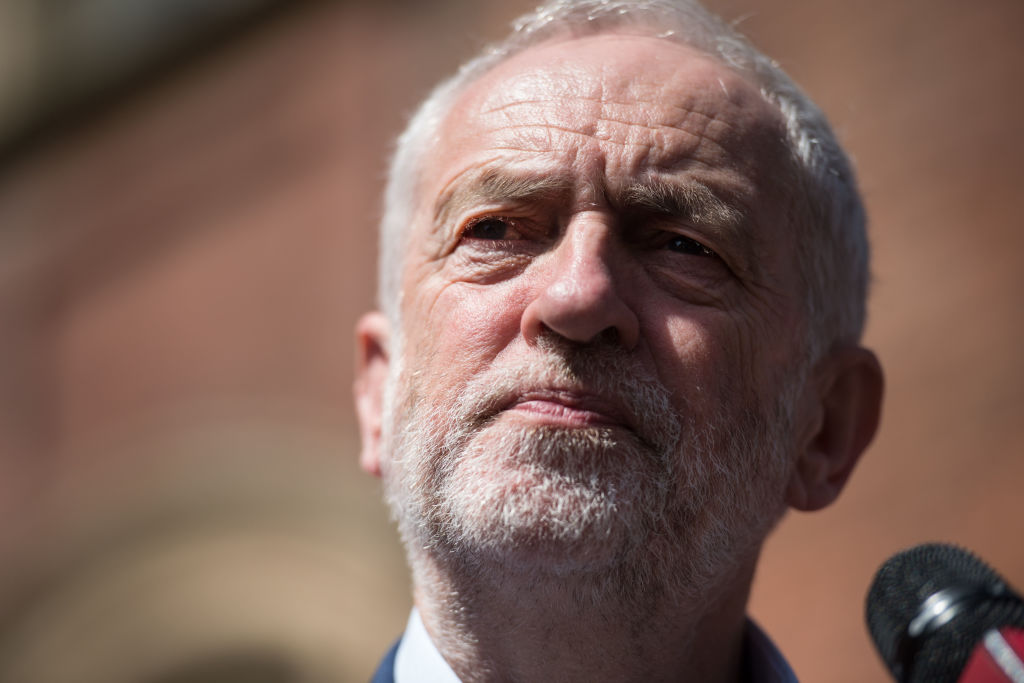Jeremy Corbyn wins an unlikely supporter today: the Sun newspaper, which throws its weight behind the Labour leader’s plans to axe hospital car park charges. The paper’s support might come as a surprise for Corbyn – particularly as its editorial goes on to criticise the health secretary Jeremy Hunt for talking ‘tough’ on scrapping charges but doing little in practice. It isn’t all good news for Corbyn though.
The Sun says Corbyn ‘gets half Marx’ because of the ‘barmy’ tax on private health insurance he plans to fund it with. The Sun argues that it simply ‘never occurs to Labour to make a saving elsewhere’. Instead, it ‘aways involves more tax’, according to the paper, which is where these plans could easily run into trouble. After all, if this tax led to people ditching their private healthcare cover, ‘the tax dries up’ – and the state ends up forking out. ‘Back to the drawing board, Jezza,’ the Sun concludes.
Meanwhile, the Daily Telegraph makes Theresa May’s immigration target its talking point – calling for the PM to opt for a ‘flexible policy’, rather than ‘arbitrary targets’. It seems likely that the promise to cut net migration down to the ‘tens if thousands’ will, once again, pop up in the Tory manifesto, the paper says, ‘even though it has been unattainable since it was first made in 2010’. The party appears not to have learned its lesson, that if ‘ever a manifesto pledge had failed to be delivered then this is it’. It’s clear that ‘firmer controls’ are needed to stem the flow of migration, the Telegraph points out. But this isn’t the way to do so and immigration is not a subject ‘that can sensibly be debated within the context of a target’. Instead, we need a means of working out ‘who we want in the country and who we don’t’, the paper suggests. In years to come, the government might realise the ‘tens of thousands’ target isn’t what ‘we need’, concludes the Telegraph: best for May to ditch the fixed ‘tens of thousands’ pledge and leave herself some wiggle room.
There’s another lesson for Theresa May in the Guardian. This time, it’s in the form of the electoral system which led to Emmanuel Macron’s decisive second round victory in the French election. The paper says the ‘two stage run off’ is ‘flexible and resilient at the same time’ – allowing ‘new movements’ to gather momentum, while preventing ‘disruptive change, enabling Mr Macron to emerge as the clear majority choice against Ms Le Pen in round two’. By comparison, Britain’s first past the post system looks inadequate, the Guardian argues, pointing out that new parties don’t stand a chance. And in the upcoming election, there’s little chance of Theresa May winning a true popular mandate by securing the vote of more than half the electorate. This isn’t all about changing the way Britain votes though, says the Guardian – the practicalities of the electoral system have a big impact in the way politicians act, the paper says. Following his victory, Macron spoke of ‘addressing anxiety and doubt’ rather than merely talking up his triumph. May ‘by contrast, bangs on about strong leadership and authority in a British system that can give her no such popular endorsement,’ the Guardian says. The case for an electoral system shake-up is growing, the paper concludes
Aside from lessons in voting systems, what else can we learn from Macron’s victory? The first thing to say is that his defeat of Le Pen is good news, the Times argues. The paper says that Macron is certainly saying the right words with his ‘acute observations on the deficiencies of Europe’s currency union and the need for France to liberalise its economy’. If he can act on these thoughts, the Times argues, ‘the outcome can only be good for the economic performance of France and the cohesion of the eurozone’. This is vital for Britain if is to prosper after Brexit, the paper points out, saying that if Macron really can remove the ’impediments to economic efficiency and growth’ in one of Britain’s key trading partners, ‘it will be to Britain’s advantage ‘. Macron is a man who ‘evinces seriousness about needed reforms to make Europe’s economy work better’, says the Times. Such a plan is in all our interests, the paper argues.







Comments